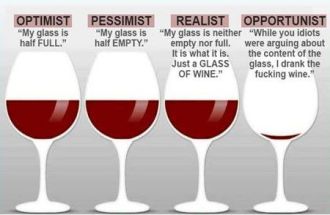
Beauty ideals executed through cosmetic modifications or fashion can be traced as far back as 6000 BC. From the ancient Egyptians who practiced complete body hair removal and experimented with nose reshaping, to tribal tattooing, to the modern day breast augmentation. For as long as people have formed groups there have been preferences for styles and ideals for beauty. These trends are often reflective of youth, health, and vitality or meant to embody a cultural value. For example in Europe during the Enlightenment period, men and women would remove their eyebrows and would pluck back their hairline in order to elongate the forehead. A large forehead was associated with knowledge and wisdom. In the Roman Empire lack of body hair was a symbol of social economic class. White powdered wigs denoted wisdom in 18th century France. A light complexion in 18th& 19th century western culture was a symbol of status- a sign that one did not spend time working outdoors. In pop culture one could argue that tan skin denotes an abidance of leisure time. Tattoos for instance- in an indigenous community it can be a symbol of status whereas in American culture tattoos and piercings gained popularity the 80’s and 90’s as a form of counter culture and a rejection of the status quo. Likewise an empowering experience and symbol for one can be oppressing for another.
The body parts usually modified tend to be reoccurring- the skin, hair, breasts, silhouette, and eyes. It is interesting to observe that motivations, purpose, and feelings behind the modifications and enhancements are what seem to change the most. It’s important to remember that whatever the current popular attitude may be, it speaks to a greater historical shift in culture. American culture has consistently shifted towards a fixation with political correctness and a victim mentality. It’s seen just as prominently in victimized feelings of oppression by the beauty industry.
It seems to me that one’s perspective is everything. I couldn’t never with a clear conscience say that I have felt oppressed by society and pressured to conform to idealized beauty standards. It’s so dramatic! Have I felt rejection in its regard? Of course. Car ride to cheer camp with a friend; Her leg brushed against mine and she made a nasty comment about how I needed to shave my stubble. Whatever. Maybe she was didn’t feel good about herself and she wanted to be a bitch that day. The world keeps on turning and we’re still friends to this day. I’ve been called too fat, too skinny, too tan, too pale, and the list goes on. Someone always has an unnecessary opinion bubbling inside. They just can’t seem curb the unbearable urge to vocalize it. But that’s all it is. An unnecessary comment. I don’t claim that I am not influenced by beauty trends either but to blame society, media, and advertising for all the negative feelings I may have experienced in my life in regards to how I feel about my body is to negate any responsibility I have for the mental frame works I have created (Cognitive Behavioral Psychology). I mean did the Romans and the Greeks with all those statues of ideal classical bodies grow up with complexes about their body image? Do the men and women in other countries where other beauty standards are revered feel “oppressed”? I don’t feel one can honestly claim oppression unless they are physically forced or barred (i.e. slavery, laws).
I would be setting myself up for a tremendous amount of disappointment if expected every person I may cross paths with throughout my life to be polite, respectful, agree with me and my choices, and see eye to eye with what I find beautiful or “normal.” How silly it is to be offended by the way someone else feels. The reality is that not everyone will like me, agree with me, or find me attractive and thats ok. I don’t need to accuse anyone of being racist or brainwashed just because they have their different opinions and preferences. I always remember the very wise words of Eleanor Roosevelt, “No one can make you feel inferior without your consent.” I can’t change society or anyone else’s attitudes, behaviors, and beliefs but I can change me. I can shift my focus and change my perspective.


I like your Eleanor Roosevelt quote! i used one too in a recent blog post – this is positive article! keep on writing x
http://mybodybyjessica.com/2015/09/20/an-unhealthy-obsession/
Love this blog post and I have to agree with mybodybyjessica, I love that Eleanor Roosevelt quote, I’ve used it multiple times! Honestly I’ve had similar issues in the past, with worrying about what everyone thought of me, and I would let all comments made really get to me. As I get older though, I care less and less about what other people think of me. I began saying that if the worst someone can say about me is that I’m fat/ugly/pale, etc… then I must be doing something right, because there’s more to life than just physical appearance.